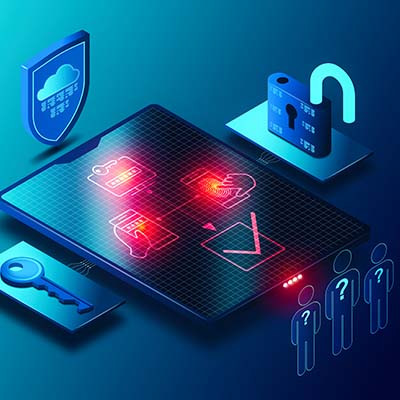Business is all about disaster mitigation and damage control. You never know exactly when something bad is going to happen, but you have to be ready for it when it does. Today, we want to discuss a couple ways that smart technology can help you in specific situations where your business might otherwise falter.
Phantom Technology Solutions Blog
Since mobile technology infiltrated the mainstream office, businesses have embraced it as a valuable communication tool. That said, mobile devices are also keys allowing hackers and other potential thieves access to your most inner sanctums. Today, we want to go over some of the options you have for mobile device management and why it’s such an important concept for your business.
Remote work has been a mainstay in most businesses’ standard operating procedures in at least some capacity, but it opens up a nasty can of worms regarding cybersecurity. If cybersecurity is not your top priority, and you have remote or hybrid employees, we need to have a talk—and probably a hard one.
We like to espouse the value of a trained and engaged remote workforce, but there is a lot that goes into ensuring that your remote team has the tools and resources they need to be successful. Let’s discuss some of the ways your business can build a remote workforce and company culture that not only encourages remote employees, but helps them thrive as well.
Remote work has changed the way that businesses approach normal operations. Due in large part to the disruptions of the past couple of years, remote work has become a staple of the business environment, and while you might hear stories of businesses pushing hard to return to the workplace, the reality is that they are the exception rather than the norm.
Remote work is now more common than it has ever been before, so we want to ensure that you are informed about the security implications of switching from in-house operations to remote or hybrid operations. Let’s discuss some practical ways you can implement remote work security policies and procedures.
Remote work might have been crucial in the face of the pandemic, but now that companies are bringing employees back to the workplace, many are pushing back. While we can of course assist with your implementation of remote work technologies, there might be more reason to consider allowing for remote work. This doesn’t come from just us; it also comes from industry experts.
Remote circumstances have forced businesses to ask themselves some hard questions, specifically in regards to network security and cybersecurity. We all know that it’s important, but a zero-trust model takes things to a whole other level. Let’s take a look at this concept and why it might be just the model you need to guarantee maximum security for your company.
Many companies have been using remote work for so long that there are growing concerns for how this will influence company culture moving forward. Let’s discuss how you can avoid having remote work directly impact your company culture so that your team can maintain a productive working relationship.
Remote work has cemented itself in today’s business environment, but there are some issues regarding whether or not people can effectively work outside of the office. In particular, the idea of a workation has sprung up in that people are working while going on a vacation. This “workation” trend is one that must be examined.
Remote work has thrown a wrench into the operations of countless businesses around the world, some more than others. While some employees have been able to adapt and make the most of the circumstances, workers with children at home might find themselves questioning their line of work or considering a change in careers.
A lot of people have wanted to do their jobs from home for a very long time. It took a global pandemic to make it happen, but over the past year, millions of people have successfully navigated remote work from the comfort of their homes. The reality of it was a lot different than what most of them expected, however. Some organizations are simply better at managing their remote workers and this, and other factors, have led to some significant turnover at some companies. Let’s take a look at the reasons for this and give you a couple of tips that will help you retain your remote workers.












